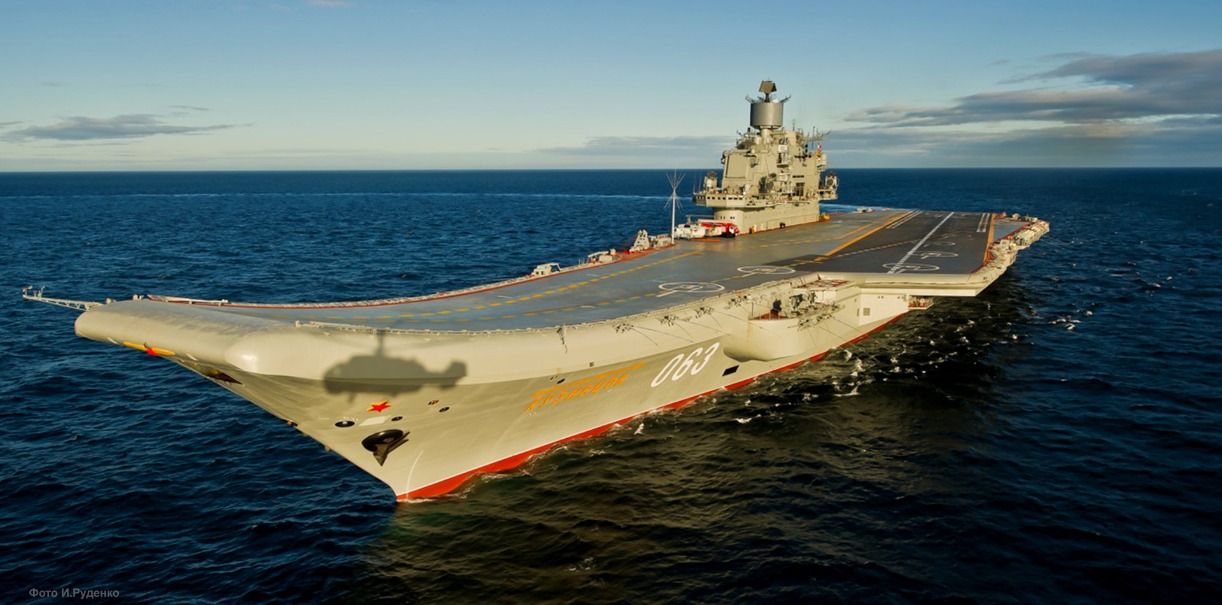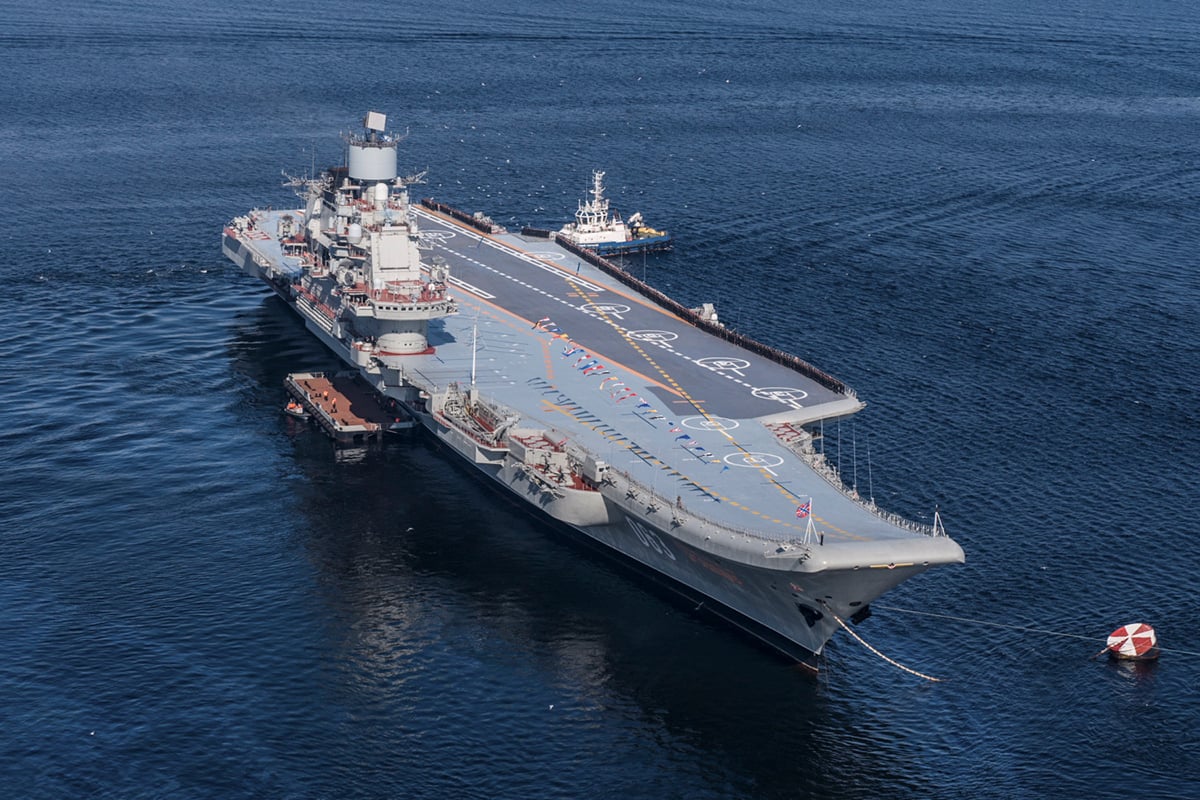'She Might Sink': The U.S. Navy Feared Russia's Admiral Kuznetsov Aircraft Carrier was in Crisis
Russia’s sole aircraft carrier, Admiral Kuznetsov, has been undergoing extended maintenance for years, sparking doubts about whether it will ever sail again.
What You Need to Know: Russia’s sole aircraft carrier, Admiral Kuznetsov, has been undergoing extended maintenance for years, sparking doubts about whether it will ever sail again. -Even before its maintenance issues, the Kuznetsov had long struggled with mechanical problems, including outdated Mazut fuel that caused black smoke and breakdowns requiring tugboat escorts. -With a history of fires and spills, the carrier became a symbol of Russia’s declining military power. -As Russia prioritizes its war with Ukraine, the question remains whether the Kuznetsov will ever return to service or quietly be scrapped, as it continues to age and fall behind modern carrier standards. Russia’s lone aircraft carrier, the Admiral Kuznetsov, has been under maintenance for years, prompting questions about whether she will ever sail again. But even before the maintenance began, when the Kuznetsov was still an active member of the Russian fleet, questions were forming, like, is this ship going to sink? One cruise in particular raised questions about the Kuznetsov’s ability to survive a voyage. “In December 2011, the Russian navy’ aging, poorly-maintained aircraft carrier Admiral Kuznetsov departed from its northern base on the troubled vessel’s fourth deployment to the Mediterranean Sea,” Robert Beckhusen wrote. “As the Kuznetsov rounded Europe and headed towards the Syrian coast, the U.S. Navy’s Sixth Fleet kept close by in case the carrier…sank.” The U.S. Navy was concerned the Kuznetsov might sink because the ship had suffered a slew of mechanical problems since debuting in 1991, yet Russian President Vladimir Putin had chosen to increase the operational tempo of the vessel. The increased operational tempo was putting a strain on the vessel, which was visibly struggling, a sentiment that the spewing of black smoke enhanced. The Kuznetsov runs off of an outdated petrochemical named Mazut, which is a tar-like substance that burns off in thick, black smoke. Whereas modern carriers were running on nuclear energy, the Kuznetsov belched smoke like an old Chevy. The smoke-belching is just one facet of the Kuznetsov’s problems, however. The ship has a problematic history. “One seaman died when the carrier caught fire during a 2009 deployment to the Med,” Beckhusen wrote. “During the same cruise, the flattop spilled hundreds of tons of fuel into the sea while refueling. Her steam turbines are so bad the ship has to be escorted by tugs in case she breaks down.” The Kuznetsov speaks to greater decline within the Russian military, fitting, as aircraft carriers are often indicative of a country’s military wellbeing. The United States has eleven supercarriers, for example, all running on nuclear energy, all with catapult systems. China is urgently building new aircraft carriers of increasing sophistication. France has a carrier. Most of the world’s nations lack a single carrier. In all respects, carrier quantity and quality correlate closely with overall military quantity and quality. Russia is no exception; Russia has one dying and outdated carrier. And Russia’s military is clearly in decline. After nearly three years of conflict with Ukraine, Russia has demonstrated an inability to secure territory from an immediate neighbor, who happens to be significantly weaker. The Russo-Ukraine War has put immense strain on Putin’s resources. And as the war has mostly featured ground-based fighting, the Kuznetsov has likely become less of a funding priority. So, now a fair question becomes will the Kuznetsov ever come out of its multi-year maintenance stint? Or will the ship quietly be canned? Either way, the Kuznetsov was past her prime the day she first set sail, and only becomes more outdated with each passing day. Harrison Kass is a defense and national security writer with over 1,300 total pieces on issues involving global affairs. An attorney, pilot, guitarist, and minor pro hockey player, Harrison joined the US Air Force as a Pilot Trainee but was medically discharged. Harrison holds a BA from Lake Forest College, a JD from the University of Oregon, and an MA from New York University. Harrison listens to Dokken. Image Credit: Creative Commons and/or Shutterstock.
Is Russia’s Only Aircraft Carrier on the Verge of Being Scrapped?
On the Verge of Sinking
Emblematic of Greater Problems

What You Need to Know:


